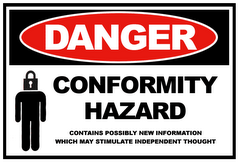Markets and Change: The Perfect Storm
TurtleTrader, best wishes for bringing sane thinking to the financial markets.
Dr. Alexander Elder
Are you ready for the next perfect storm in the financial markets? Your plan is not just buy and hope is it? Are you ready for the unexpected change?
Change alone is unchanging. In other words, the only thing that stays the same is change. Many have voiced that sentiment, but it is safe to say Heraclitus was the first (roughly 2,500 years ago). But what did Heraclitus mean? Chances are he rose from the same bed each morning, ate a similar breakfast, interacted with the same or similar people, had many days that looked like other days, and overall led a fairly straightforward and predictable existence. The existence of routine seems to contradict the idea of constant change. But does it really? Yes and no. Let's take a closer look.
Heraclitus' observation was the seed that grew into modern day chaos theory. A chaotic system is one that obeys a given set of rules, but is too complex to predict due to the high number of variables involved. Consider the game of chess: wooden pieces confined to 64 squares on a board, guided by simple rules a child could learn. Yet there are more hypothetical outcomes for a game of chess than there are particles in the known universe. With enough variables in play, any rule based system becomes chaotic, observable and measurable but too complex for prediction. Period.
After a million games of chess that all bear similarities but are all different, we can get a better feel for what Heraclitus meant. The game itself is in flux, but the structure of the game is constant. The outcome is always different in some way, but the rules are always the same.
Consider financial markets: price must either go up, down or sideways. Whether the time frame is one second, one hour or one year, one of the three outcomes must occur. No advances in technology, no leaps of modern science, no radical shifts in perception will ever alter this fact. Thus the trader does not need to predict the future, or even attempt to predict it. He only needs to know the longstanding rules of the game and abide by them. If the market goes up, he is long. If the market goes down, he is short. Price is nothing more than a collective perception of reality. When reality changes, perception changes. When perception changes, price changes. And if you can react properly to price changes, you can profit.
Read Bestselling Book Trend Following and visit the Trend Following Blog at Michael Covel


No comments:
Post a Comment